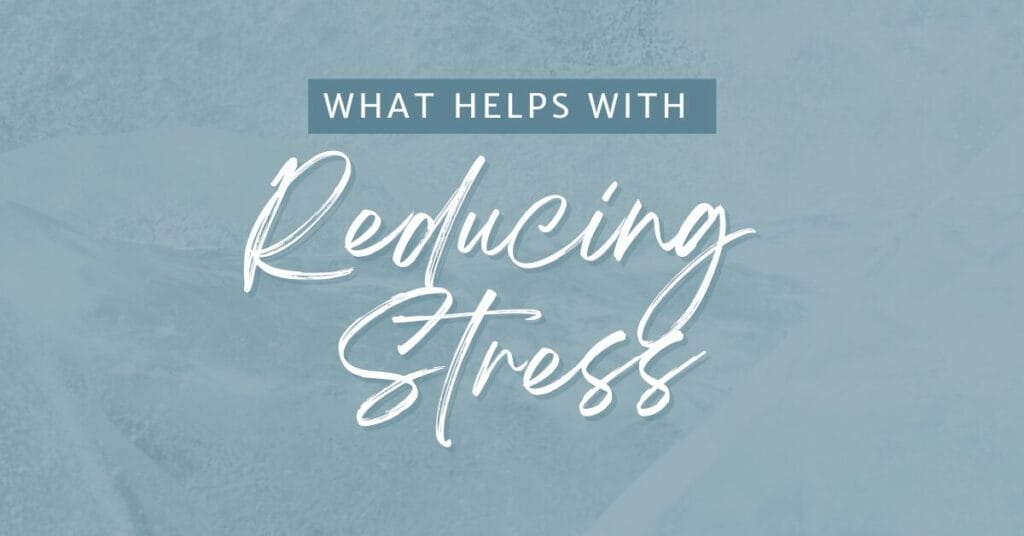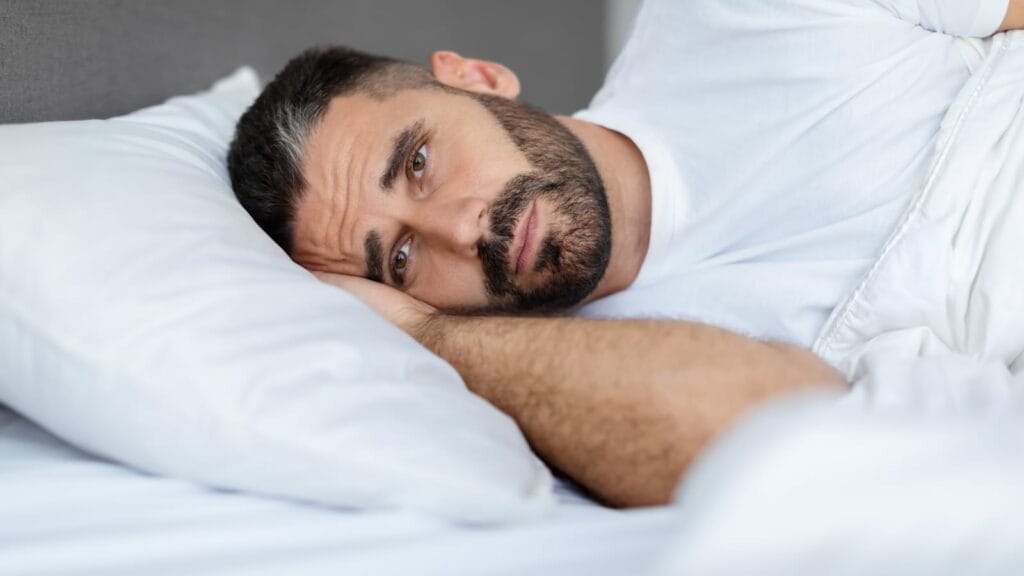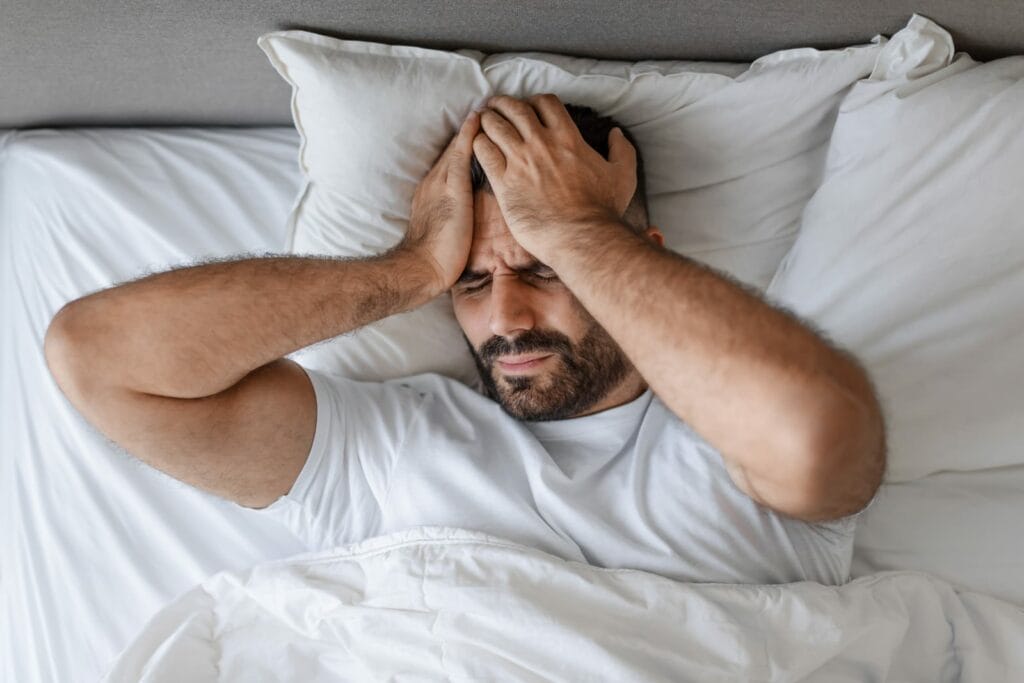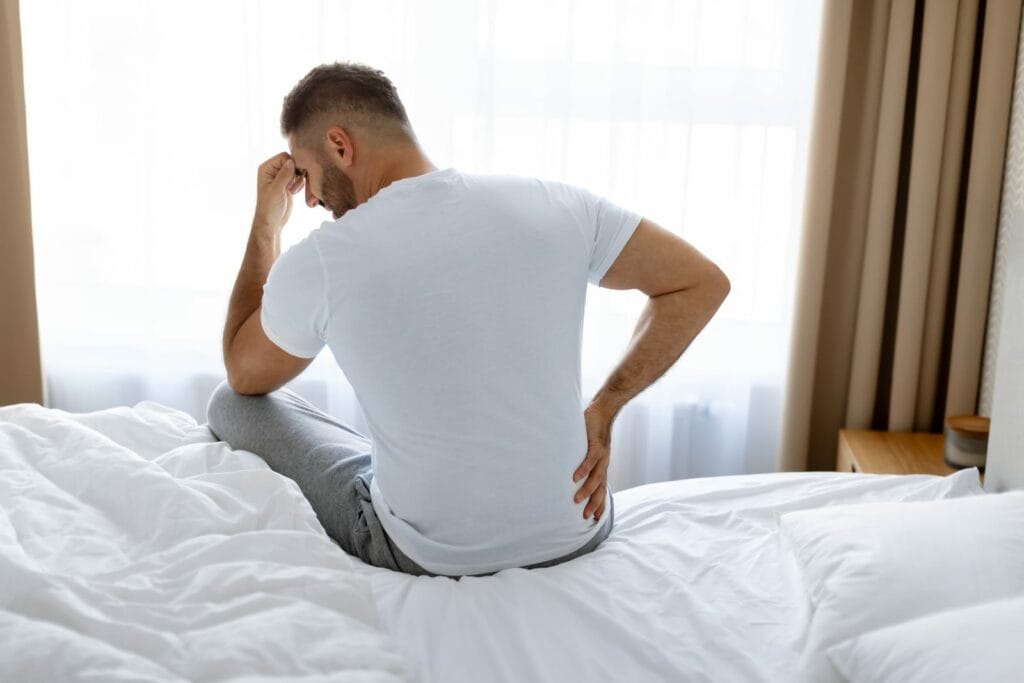What Helps with Reducing Stress

The body’s stress response, also known as the ‘fight or flight’ response, is a natural and necessary response to situations that feel threatening or dangerous. Once the threat has passed, the body returns to its normal state. But some people experience frequent or even constant stress that affects their daily functioning, [1] so they search for what helps with reducing stress.
If you are experiencing high levels of stress, feel overwhelmed and are having difficulty coping even after looking up ‘How to stop stress?’ or ‘How to calm down anxiety and stress?’ it can be helpful to talk to a health practitioner for proper guidance.
Mosh offers an accessible and convenient way to get reliable advice on what helps with reducing stress and maintaining good mental health.
Mosh health practitioners are able to assess your overall health and well-being and provide personalised advice or recommendations, depending on what you need. Because you can connect with a health practitioner from anywhere in Australia through our telehealth consultation services, you can have a confidential conversation about your mental health concerns from the comfort of your own home.
Understanding what stress is and how it affects the body can be helpful in finding ways to deal with stress effectively. Read on for answers to common stress management questions.

What are simple habits that relieve stress?
A small amount of stress is a natural and normal part of life and can help you perform at your best in times of pressure. However, chronic or excessive stress can negatively impact your physical and mental health. It’s not realistic to try to eliminate all stress from your life completely, but there are ways to reduce stress effectively when you experience it:
Building healthy coping mechanisms, such as relaxation techniques, exercise, or finding social support.
Practicing evidence-based stress relief strategies such as mindfulness, meditation, deep breathing and relaxation exercises
Organising your daily tasks down into smaller, more manageable chunks, which can help you feel more in control of your workload and less overwhelmed, helping you minimise stress. [2]
If you want to incorporate some of these habits into your life, you may ask your Mosh health practitioner if it’s an ideal pathway for you to find what helps with reducing stress. Starting with Mosh is easy; just take the free mental health quiz on our platform, and a Mosh health practitioner will review your information to identify the ideal support you need, which may be simple advice, a customised plan, medication, or a different solution.
If a Mosh health practitioner believes that a virtual consultation would be beneficial in addressing what help you manage with reducing stress for you, they will schedule an appointment with you. During the consultation, your health practitioner may ask questions about your medical history, any medications you are taking, and previous mental health strategies you have tried in order to get a better understanding of your situation.

Can food help alleviate stress?
A balanced diet can provide your body with the extra energy it needs to cope with stressful events and help to regulate cortisol, or stress hormone, levels. Some research suggests that foods rich in polyunsaturated fats, such as omega-3 fats, and vegetables may be particularly helpful in regulating cortisol levels. Incorporating these into your meals can help you find what helps with reducing stress. [3]
Mosh health professionals can give you science-backed information on how food and a healthy diet can impact your stress levels and, if necessary, provide recommendations for incorporating specific types of foods into your diet to help alleviate your stress. If your Mosh health practitioner recommends you take non-prescription products like vitamins and you agree to take them, you can order them from the Mosh platform, and we’ll deliver them to your doorstep.
Mosh also offers a subscription service that allows you to have your supplies replenished as needed. Our subscription service is flexible and easy to use; you can pause or cancel your subscription anytime, free of charge. This allows you to easily adjust your subscription to meet your changing needs and preferences.

How does physical activity help with stress?
Under stress, your muscles tend to tense up, contributing to feelings of discomfort and stiffness, which may also lead to physical aches and pains. Stretching can be a helpful form of exercise to relieve muscle tension and promote relaxation. [4] Other forms of physical activity can also help manage stress and lower blood pressure.
Engaging in regular aerobic physical exercise, for example, can help lower stress hormone levels and improve overall physical and mental health. Examples of aerobic exercise include walking, running, cycling, swimming, and dancing. [5] It’s important to choose activities that fit your fitness level and goals, so consider talking to a health practitioner before trying a new type of exercise.
You’re welcome to ask your Mosh health practitioner during your consultation if exercise can be the answer to what helps with reducing stress for you. Depending on your unique circumstances, your health practitioner may incorporate various strategies that may or may not include exercise into your Mosh mental health treatment plan (if needed). Of course, you may accept or decline your health practitioner’s proposed plan if you don’t feel comfortable.
If you choose to proceed with a Mosh plan, you may get ongoing consultations with your health practitioner to monitor your progress, if necessary. These consultations can be conducted through text, call, or video chat, depending on your preferences.
Explore our mens health platform to learn more about the Mosh services and resources that are available to help you cope with stress.
Check out this related article
Frequently Asked Questions
Q: What are some effective stress management techniques?
A: Some effective stress management techniques include deep breathing exercises, relaxation techniques, mindfulness practices, and maintaining a healthy work-life balance.
Q: How can I reduce stress in my life?
A: You can reduce stress in your life by identifying the causes of stress, practicing relaxation techniques, engaging in physical activity, and setting boundaries to prioritize self-care.
Q: What are the physical symptoms of stress?
A: Physical symptoms of stress can include headaches, muscle tension, fatigue, stomach issues, changes in appetite, and difficulty sleeping.
Q: How does stress affect mental and physical health?
A: Chronic stress can negatively impact both mental and physical health by increasing the risk of anxiety disorders, depression, heart disease, digestive issues, and weakened immune system.
Q: Are there any specific relaxation techniques that can help reduce stress?
A: Yes, relaxation techniques such as deep breathing exercises, progressive muscle relaxation, guided imagery, and yoga can be helpful in reducing stress and promoting relaxation.
Q: What is the relationship between stress and anxiety?
A: Stress and anxiety are closely related, with chronic stress often contributing to the development of anxiety disorders. Managing stress effectively can help reduce anxiety symptoms.
Q: How can I achieve a better work-life balance to reduce stress?
A: To achieve a better work-life balance and reduce stress, you can prioritize self-care, set boundaries around work hours, delegate tasks, and make time for activities that bring you joy and relaxation.
References
[1] https://www.health.harvard.edu/staying-healthy/top-ways-to-reduce-daily-stress
[2] https://www.health.qld.gov.au/news-events/news/how-to-reduce-stress-right-now
[4] https://www.health.harvard.edu/staying-healthy/top-ways-to-reduce-daily-stress





